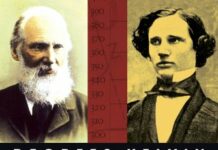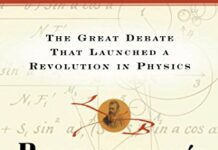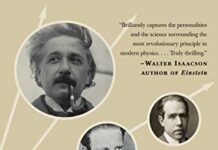
Ebook Info
- Published: 1994
- Number of pages:
- Format: PDF
- File Size: 11.42 MB
- Authors: David Lindley
Description
For more than a century physicists have hoped that they were closing in on the Holy Grail of modern science: a unified theory that would make sense of the entire physical world, from the subnuclear realm of quarks and gluons to the very moment of creation of the universe. The End of Physics is a history of the attempts to find such a “theory of everything”; a forceful argument it will never be found; and a warning that the compromises necessary to produce a final theory may well undermine the rules of good science.At the heart of Lindley’s story is the rise of the particle physicists and their attempts to reach far out into the cosmos for a unifying theory. Working beyond the grasp of the largest telescopes or the most powerful particle accelerators, and unable to subject their findings and theories to experimental scrutiny, they have moved into a world governed entirely by mathematical and highly speculative theorizing, none of which can be empirically verified. Lindley argues that a theory of everything derived from particle physics will be full of untested—and untestable—assumptions. And if physicists yield to such speculation, the field will retreat from the high ground of science, becoming instead a modern mythology. This would mean the end of physics as we know it.
User’s Reviews
Opiniones editoriales About the Author David Lindley, formerly a theoretical astrophysicist at Cambridge University in England and the Fermi National Accelerator Laboratory in Illinois, has been an editor of the journals Nature and Science and is currently Associate Editor of Science News, in Washington, D.C. He lives in Takoma Park, Maryland.
Reviews from Amazon users which were colected at the time this book was published on the website:
⭐The author David Lindley defines terms that are often loosely used in physics. Although I have a physics degree, Lindley was the first author I’ve read who took the time to explicate the classic “action at a distance” and to distinguish it from relativity’s propagation of gravity at the speed of light (and as well from Einstein’s “spooky action at a distance”). Did you know that Newton viewed “action at a distance” and the separate definitions of inertial and gravitational mass as problematic? Lindley points out such critical details.As my review title states, this book contains the best overview of the history of physics I have read. I wish Lindley would re-release it as just that with a little beefing up and a new title. Most physics majors would gain some clarification by reading this book.
⭐
⭐The premise of this book has intrigued me for years. I have not finished reading the book yet but I find that it makes some interesting and interesting points.
⭐
⭐Got it…..in good shape
⭐
⭐David Lindley’s The End of Physics is yet another excellent addition to the growing list of outstanding physics books. Lindley is a long time editor of Science magazine and accomplished author.The book is a lucid and well-written text that provides an overview of recent developments in theoretical physics as well as an examination of what these developments mean. I found the author’s discussion of general relativity and inflation to be particularly well handled – better than is often the case in these types of works. Lindley’s exception strength, however, is his discussion of contemporary theoretical developments.The quest for a comprehensive “Theory of Everything” has become the Holy Grail of modern physics. The meaning of any such theory, however, has not been the subjected of much popular discussion. Cutting-edge theoretical physics are complex and inundated with esoteric mathematical constructs. These formulations appear to be driven in large part by mathematical expediency rather than empirical evidence; resulting in models seem excessively contrived and ad hoc in nature. Variables appear to be arbitrarily adjusted to account for unwanted variance – leaving something that looks like a modern version of Ptolemy’s universal model (a complex intellectual constructs that bare little resemblance to reality).The only shortcoming of the book is its lack of a more direct discussion of philosophical issues pertaining to science. For instance, do mathematical and scientific theories represent reality in some “real” way or are they largely just useful metaphorical constructs. It has been my experience that scientific realism and an associated narrow verificationist view of truth are often unchallenged assumptions of philosophical modernism. Lindley talks around this question; however, a more direct discussion would be instructive. Is science the sole means of acquiring and testing knowledge? Upon examination it appears that we possess a range of logical and moral truths that are not obtained through scientific induction. Regardless of one’s view this is an important, and often overlooked, question to ponder.Overall, The End of Physics is an excellent book. It provides a good overview and discussion of modern developments in theoretical physics. I would recommend it to a general audience; however, it may be a bit dense of a starting point for someone with no exposure to quantum theory or cosmology.
⭐
⭐This is an amazing book that I would recommend to anyone looking for a concise but illuminating tour of the development of modern physics. What sets this book apart is that the author does not just trace out the major developments of physics from Newton up through the 20th century. He also raises important questions about what the purpose, aim and intention of physics might be. He points out the danger of building ever more-massive super-colliders to discover ever-smaller and more exotic particles without having a philosophical aim to guide that search. The public will grow weary of paying for research they do not understand, and thus our search for smaller particles must go hand in hand with a vision of purpose that can put new discoveries in perspective. He is concerned that unless physics has an intentional “end” in mind, it will come to an “end”. He also speaks about times in history when some scientists really had thought that physics had reached the “end” because they thought mechanistic laws could describe all phenomena. He sheds light on hopes of reaching a unified theory in the future as well and whether we should look forward to that “end” of physics. Thus the title of the book is a double entendre that raises some fascinating questions as he goes through the relevant history.Even people who know the history of the development of physics will be interested by the philosophical questions he raises as he goes.
⭐
⭐Ladies and Gentlemen ….. Dewey Larson’s Reciprocal Systems Theory of Space & Time …. is not very popular.Because the ABSOLUTE FACT that time is 3 dimensional would mean re-writing all the textbooks. The only mistake Larson made was thinking that scientists actually wanted the correct unified theory of everything. They don’t (that is, the mainstream which is going around looking for something they KNOW exists … clearly insane).Larson proves these things. See for yourself. Interestingly, what you see is not space, but time. These fundamental shifts are too much for most people. Yet the essential thing in learning is realizing that you do not know. The dividing line to see if you’re a real man of science has been drawn.
⭐
Keywords
Free Download The End Of Physics: The Myth Of A Unified Theory in PDF format
The End Of Physics: The Myth Of A Unified Theory PDF Free Download
Download The End Of Physics: The Myth Of A Unified Theory 1994 PDF Free
The End Of Physics: The Myth Of A Unified Theory 1994 PDF Free Download
Download The End Of Physics: The Myth Of A Unified Theory PDF
Free Download Ebook The End Of Physics: The Myth Of A Unified Theory


